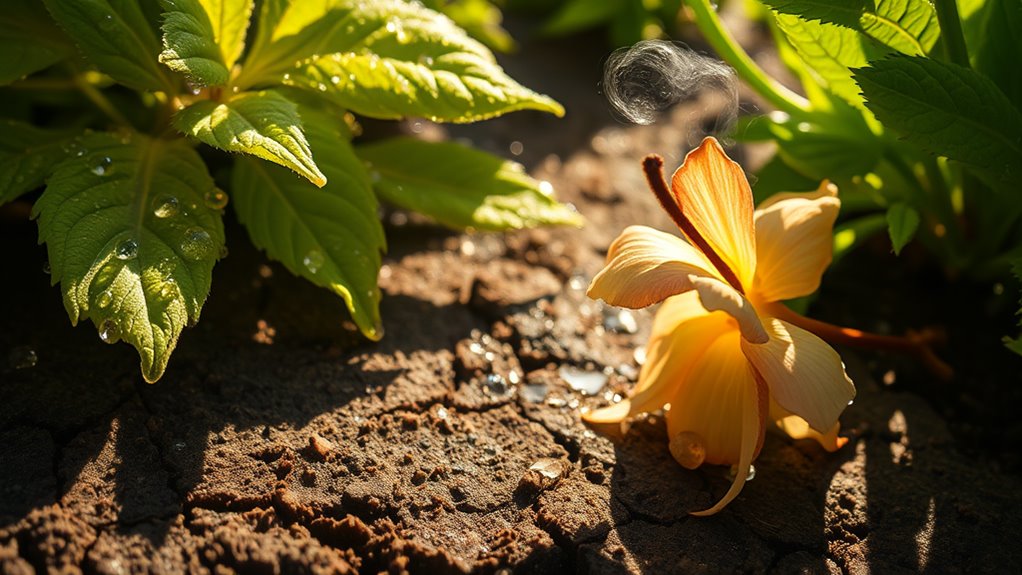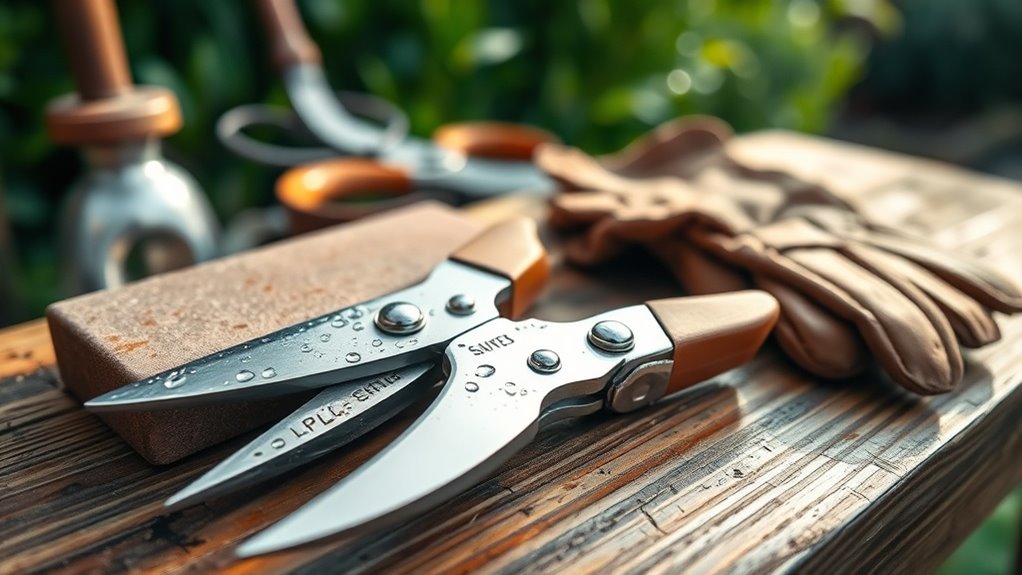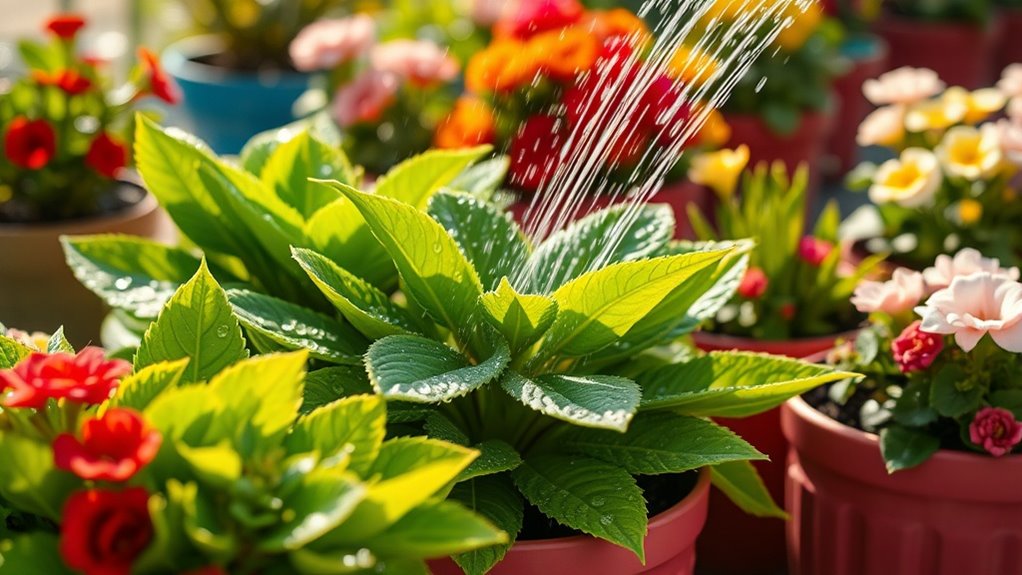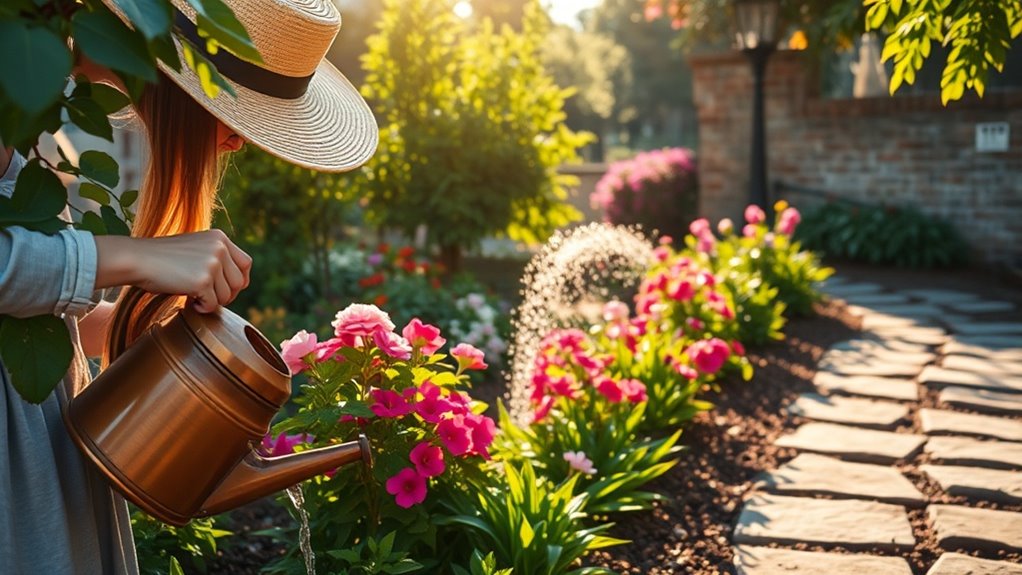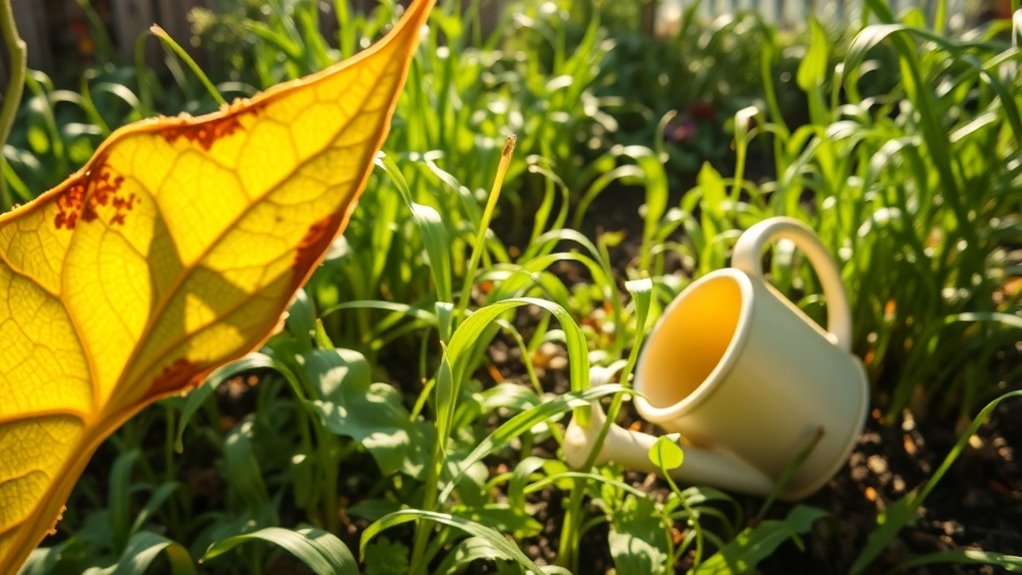Why You Should Never Water Your Plants at This Time of Day
Watering your plants during the heat of the day can lead to rapid evaporation, ineffective moisture absorption, and plant stress. This practice not only risks leaf scorch but also jeopardizes your plants’ overall vitality. By exploring the science behind optimal watering practices and understanding the timing that benefits your garden, you can significantly enhance your plants’ health and resilience. So, what’s the best time to give your plants the hydration they need?
The Science Behind Plant Watering
When you understand the science behind plant watering, you’ll better support your plants’ health and growth.
One key watering timing tip is to observe how soil moisture affects nutrient absorption. Watering too often can lead to root rot, while underwatering stresses your plants.
Proper timing ensures roots receive adequate moisture without suffocation, optimizing nutrient uptake and encouraging robust growth throughout the plant’s lifecycle. Additionally, watering at optimal times of day can further enhance evaporation rates and reduce water loss, ensuring effective moisture retention in the soil.
Morning vs. Evening Watering
Understanding soil moisture and nutrient absorption naturally leads to the question of the best time to water your plants. Watering in the morning allows soil to absorb moisture efficiently before the heat of the day. Evening watering can promote fungal diseases due to higher humidity levels overnight. Choosing morning watering gives your plants a healthy start while minimizing risks associated with evening routines. Additionally, overwatering can lead to symptoms such as signs of overwatering like yellowing leaves and root rot.
Dangers of Watering in the Heat
Watering plants during the heat of the day can be risky, as it often leads to rapid evaporation and insufficient moisture absorption.
When you water in high temperatures, most of the water evaporates before your plants can benefit from it. Additionally, this practice can shock your plants, causing stress and weakening their resilience.
Opt for early morning or late evening watering instead.
Health Risks for Your Plants
Although you may not realize it, poor watering practices can lead to significant health risks for your plants.
When you water during the hottest parts of the day, plants can suffer from heat stress and leaf scorch.
Additionally, improper timing increases evaporation, reducing moisture availability.
This leads to dehydration and makes plants more susceptible to diseases, ultimately impacting their overall vitality and growth. Proper hydration is essential for avoiding overwatering plants, which can exacerbate these issues and compromise plant health.
Impact on Soil and Roots
Poor watering practices don’t just affect your plants’ health; they also have a significant impact on soil composition and root development.
Consider these effects:
- Soil compaction can occur from excess water.
- Nutrient leaching may reduce soil fertility.
- Roots might struggle for oxygen in oversaturated conditions.
- Uneven moisture levels can lead to stunted growth.
Proper timing can enhance root health and soil quality.
Best Practices for Optimal Watering Timing
To achieve the best results in plant health, timing your watering effectively is crucial.
Water early in the morning, when temperatures are cooler, reducing evaporation and ensuring plants absorb moisture efficiently.
Avoid watering at midday, as heat can cause rapid evaporation and stress plants.
If necessary, you can water in the evening, but ensure foliage dries overnight to prevent fungal diseases. Additionally, consider soil type, as different soils have varying water retention capabilities, which can influence your watering strategy.

